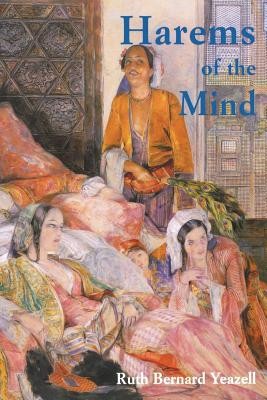
- We will send in 10–14 business days.
- Author: Ruth Bernard Yeazell
- Publisher: Yale University Press
- ISBN-10: 030019871X
- ISBN-13: 9780300198713
- Format: 15.6 x 23.4 x 2 cm, softcover
- Language: English
- SAVE -10% with code: EXTRA
Reviews
Description
Fascinating and mysterious, the idea of the harem long captured the imagination of the West. The Muslim practice of concealing the women of the household from the eyes of alien men tempted Europeans to extravagant projections of their own wishes and fears. This intriguing book examines the art that resulted. Drawing on a wide range of evidence from the late seventeenth century to the early twentieth century--including travel writing, literature, painting, and even opera--Ruth Bernard Yeazell demonstrates the surprising variety of expressions inspired by the harem of the Western imagination.
The book provides both a rich account of changing perceptions of the harem and a demonstration of the tenacious persistence of myth and stereotype. Yeazell shows that Europe's hunger for facts about the harem combined repeatedly with the impulse to fantasize. Masculine erotic fantasies of the harem were reflected in the paintings of Ingres and Delacroix, the writings of de Sade, Byron, and Loti, and the work of anonymous pornographers. Alternate representations portrayed the harem as a prison or a locus of freedom, a place of murderous rivalry or a home of loving sisterhood, a chamber of erotic license or a nightmarish snare of frustration and ennui. And Montesquieu, Mozart, and Charlotte Brontë among others explored in their art the opposition of the imaginary pleasures of the harem to the freely chosen union of a loving couple. In a nuanced reading of Ingres's Bain turc andother works, Yeazell concludes that for some the appeal of the harem lay in the fantasy of eluding time and death.EXTRA 10 % discount with code: EXTRA
The promotion ends in 16d.05:43:04
The discount code is valid when purchasing from 10 €. Discounts do not stack.
- Author: Ruth Bernard Yeazell
- Publisher: Yale University Press
- ISBN-10: 030019871X
- ISBN-13: 9780300198713
- Format: 15.6 x 23.4 x 2 cm, softcover
- Language: English English
Fascinating and mysterious, the idea of the harem long captured the imagination of the West. The Muslim practice of concealing the women of the household from the eyes of alien men tempted Europeans to extravagant projections of their own wishes and fears. This intriguing book examines the art that resulted. Drawing on a wide range of evidence from the late seventeenth century to the early twentieth century--including travel writing, literature, painting, and even opera--Ruth Bernard Yeazell demonstrates the surprising variety of expressions inspired by the harem of the Western imagination.
The book provides both a rich account of changing perceptions of the harem and a demonstration of the tenacious persistence of myth and stereotype. Yeazell shows that Europe's hunger for facts about the harem combined repeatedly with the impulse to fantasize. Masculine erotic fantasies of the harem were reflected in the paintings of Ingres and Delacroix, the writings of de Sade, Byron, and Loti, and the work of anonymous pornographers. Alternate representations portrayed the harem as a prison or a locus of freedom, a place of murderous rivalry or a home of loving sisterhood, a chamber of erotic license or a nightmarish snare of frustration and ennui. And Montesquieu, Mozart, and Charlotte Brontë among others explored in their art the opposition of the imaginary pleasures of the harem to the freely chosen union of a loving couple. In a nuanced reading of Ingres's Bain turc andother works, Yeazell concludes that for some the appeal of the harem lay in the fantasy of eluding time and death.

Reviews